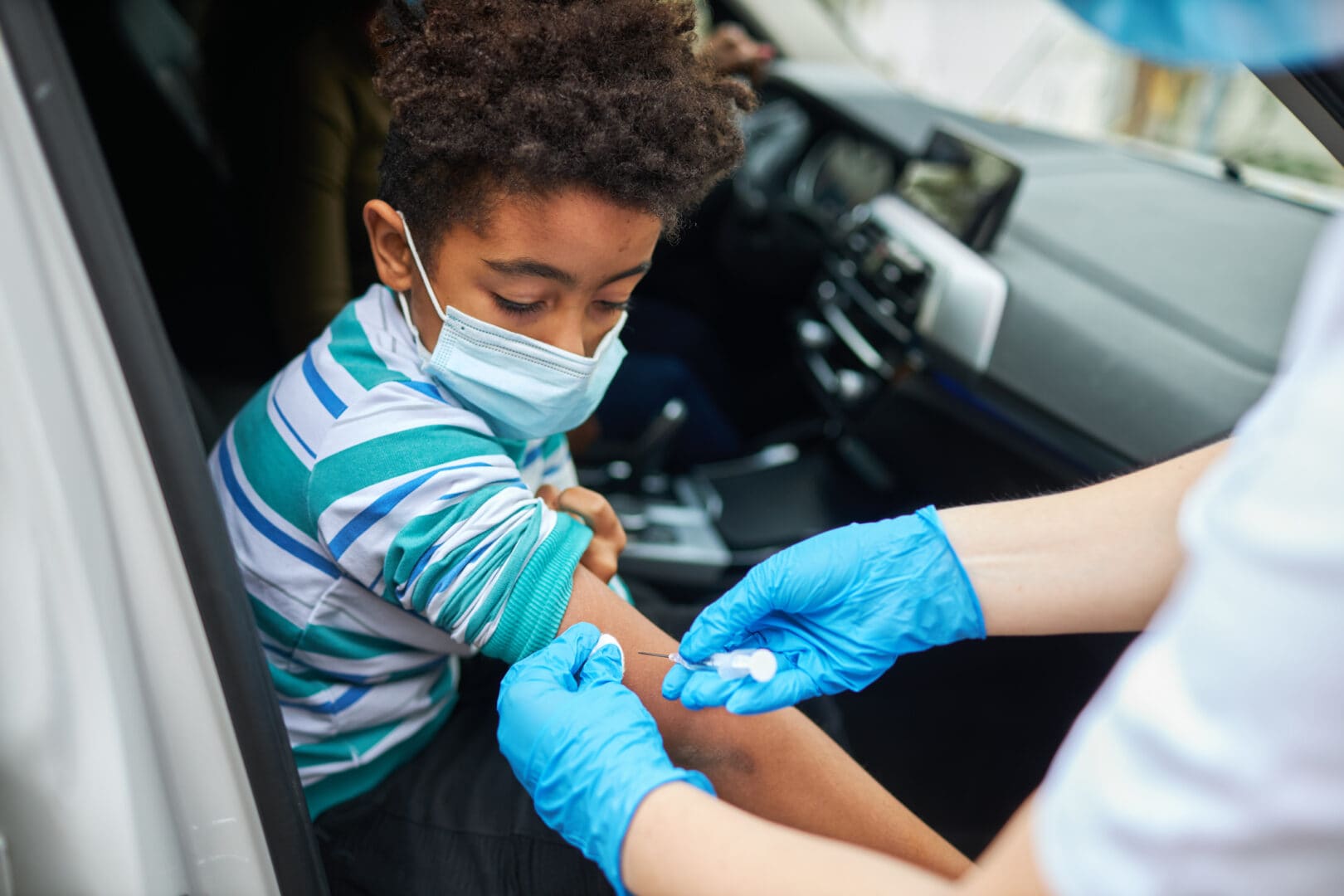As soon as children ages 5-11 became eligible for the COVID vaccine, many families raced out to get the shot. The Biden administration reports that nearly a million kids under age 12 received their first dose of the Pfizer vaccine during the first week it was available. While enthusiasm for pediatric vaccines seems to be high, not everyone who wants a COVID vaccine for their kids may be able to get one. The latest research shows lower income families face unique hurdles when it comes to accessing vaccines, and it may keep their kids from having a fair chance at getting vaccinated.
The Kaiser Family Foundation recently surveyed parents about their reasons for choosing or forgoing vaccination. While uncertainty about potential side effects is the main reason for vaccine hesitancy among parents with kids ages 5-11, those with lower incomes — defined as an annual household income of less than $50,000 — are also more likely than higher income parents to cite additional worries about things like transportation and missed work.
Among lower income parents with kids ages 5-11, who were polled in this survey:
- 51% say they’re worried about missing work for kids’ vaccine appointments or side effects.
- 48% don’t think they can find a trustworthy place to get their child vaccinated.
- 38% say they’ll have difficulty finding transportation to get their child vaccinated.
Among higher income parents with same-aged kids, less than 10% of respondents share concerns about transportation or places to get vaccinated, and only 23% are worried about missing work.
Vaccine safety and cost misinformation has also disproportionately impacted lower income parents. Nearly 75% of vaccine-hesitant, lower income parents with kids ages 5-11 say they are worried the vaccine will cause their children to have fertility issues, compared with 60% of higher income parents. This claim has been debunked by experts and the Centers for Disease Control and Prevention (CDC). Over half of lower income parents also say they are worried about paying out of pocket for the COVID vaccine, even though it is currently free for all eligible.
Outbreaks Near Me, a research group composed of doctors from Boston Children’s Hospital and Harvard Medical School, has been tracking vaccine data since April 2021, and their research supports the argument that income level plays a role in whether or not kids get vaccinated against COVID. In the group’s most recent survey, 47% of parents with kids ages 5-11 and whose annual income was $100,000 or more said they’re willing to get their kids vaccinated. Among parents whose income was under $50,000, just 34% said the same.
There are also vaccine disparities based on race and location. Dr. Jorge Caballero, a board certified anesthesiologist and COVID researcher, recently tweeted his findings that, based on CDC data, “there are twice as many COVID-19 vaccination sites with doses for kids ages 5-11 years in predominantly white neighborhoods as there are anywhere else in the U.S.”
His findings are especially troubling because children of color are disproportionately impacted by severe COVID infections. According to a September study by the Kaiser Family Foundation, Black and Hispanic children are more likely to be hospitalized with COVID and have multisystem inflammatory syndrome (MIS-C). Hispanic, Black, American Indian and Alaska Native children also have higher rates of death from the virus.
Though vaccines are now available for everyone ages 5 and up, COVID infections are still on the rise in many parts of the U.S. Over 122,000 new pediatric COVID cases were added during the week leading up to November 11, according to the latest report by the American Academy of Pediatrics.
As we head into the holidays and the coldest winter months, experts have warned there could be another spike in cases. Already, the U.S. is averaging more than 82,000 new cases per day among all age groups, with the majority of states seeing “unchecked community spread,” according to the latest data from Johns Hopkins University and NPR.
Experts like Dr. Anthony Fauci, the director of the National Institute of Allergy and Infectious Diseases, stress that vaccines are the best tool for fighting the virus and keeping people safe. First Lady Jill Biden recently tweeted, “Nothing is more important than our children’s health and safety. And parents, we now have the best tool available to protect your child against COVID-19: the vaccine.”
https://twitter.com/FLOTUS/status/1457862494144319489?s=20
While it’s true that COVID vaccines are safe and effective for kids, the biggest challenge may be ensuring all families who are willing and ready to get their kids vaccinated are able to access the shot.



